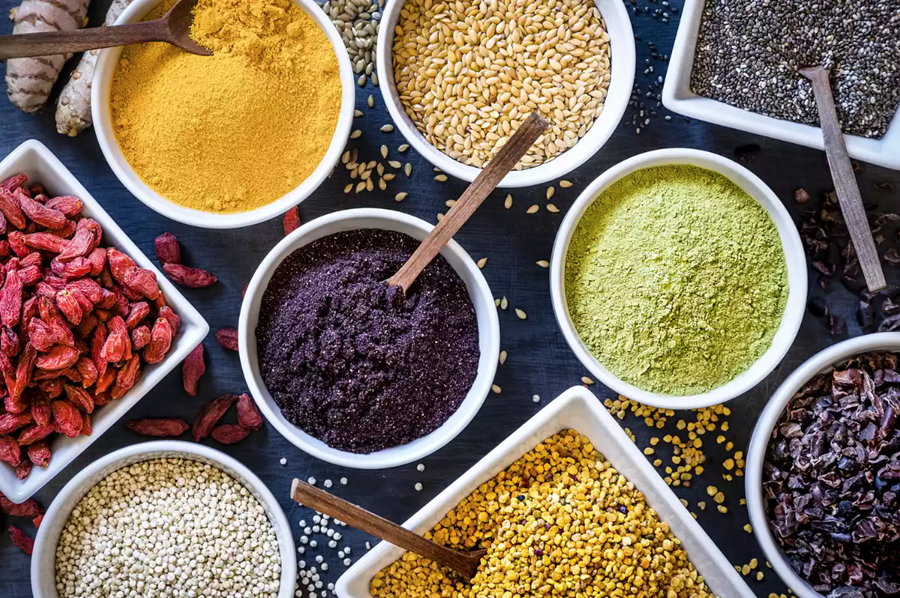
Adaptogens- yes they have a long, unusual name, but these super-herbs and plants are a great way of giving our bodies some added love and support in times of need. They can be taken as a supplement, added to your coffee, smoothie, hot chocolate, or porridge and found in many of the MEDAHUMAN drinks.
Read on to learn more about adaptogens and how incorporating them into your day-to-day might be the answer to some of your stress needs.
WHAT ARE THEY?
Adaptogens are a class of herbs and plants that are thought to help the body “adapt” to stressors. They are safe, non-toxic plants that may support the body in feeling more balanced and harmonised.
Adaptogens can help support our body’s stress responses – whether that is reacting to or recovering from short and long term physical or mental stress. Some adaptations even have the ability to contribute to immune system health and overall well-being. Research has shown that adaptogens may help to combat fatigue, help ease depression and anxiety, boost mental performance and help us feel our best.
HOW DO THEY WORK?
Adaptogens help to regulate balance in our hypothalamic, pituitary and adrenal glands and work to modulate the release of our stress hormones and the physiological responses to stress. All in all, a winner for stress support!
OUR TOP ADAPTOGENS FOR STRESS SUPPORT
FOR LONG TERM STRESS
Ashwagandha and Asian ginseng may help to soothe long term stress and the hormone imbalances that result from it. Ginseng may help to regulate immune responses and the hormonal changes that occur due to stress, therefore helping to maintain homeostasis. (1) Ashwagandha has been reported to improve mental well-being, eating behaviours and reduce stress through its adaptogenic properties. (2) Ashwagandha can be found in our MEDAHUMAN- RELAX beverage.
FOR ACUTE STRESS AND ANXIETY
Holy basil, also known as Tulsi, may help to reduce anxiety and acute stress (3). The whole holy basil plant can act as an adaptogen, with research showing that holy basil may help your mind cope with different types of stress. (4)
One study demonstrated how the use of Holy Basil in both humans and animals reported an overall reduction in mental stress, sexual problems, sleep issues, forgetfulness and radiation from chemicals and heavy metals.(5) It also reported antidepressant activity with additional positive effects on memory and cognitive function. (6)
Try out holy basil in tinctures, supplements or our favourite – as a tea!
FOR IMMUNE HEALTH
Reishi is one of the medicinal mushrooms that may help support immune system health. It is suggested that Reishi mushrooms may promote white blood cell function – a critical part of the immune system. One study looking at male athletes discovered that taking reishi extract in supplement form improved lymphocyte function, which helps the body fight off infections. (7) You can try Reishi as a supplement, extract or even buy reishi coffee!
NOT FOR EVERYONE
Adaptogens can react/ respond differently from person to person, so doing some research into which one would best suit your lifestyle is key. If you’re new to adaptogens, it may be worth checking out MEDAHUMANS’s adaptogen-containing drinks such as RELAX and ENERGY to give you a taster.
Similar to all supplements, adaptogens may have side effects and possible medical interactions so it is advised to work with a doctor, nutritionist or healthcare professional before adding new supplements and herbs to your routine.
https://www.ncbi.nlm.nih.gov/pmc/articles/PMC5628357/ (1)
https://www.ncbi.nlm.nih.gov/pmc/articles/PMC6979308/ (2)
M. Venu Prasad, Antifatigue and Neuroprotective Properties of Selected Species of Ocimum L., University of Mysore, Mysore, India, 2014.(3)
S. Mondal, B. Mirdha, M. Padhi, and S. Mahapatra, “Dried leaf extract of Tulsi (Ocimum sanctum Linn) reduces cardiovascular disease risk factors: results of a double-blinded randomized controlled trial in healthy volunteers,” Journal of Preventive Cardiology, vol. 1, no. 4, pp. 177–181, 2012. (4)
https://pubmed.ncbi.nlm.nih.gov/21977056/ (5)
https://pubmed.ncbi.nlm.nih.gov/19253862/ (6)
https://pubmed.ncbi.nlm.nih.gov/18048435/ (7)
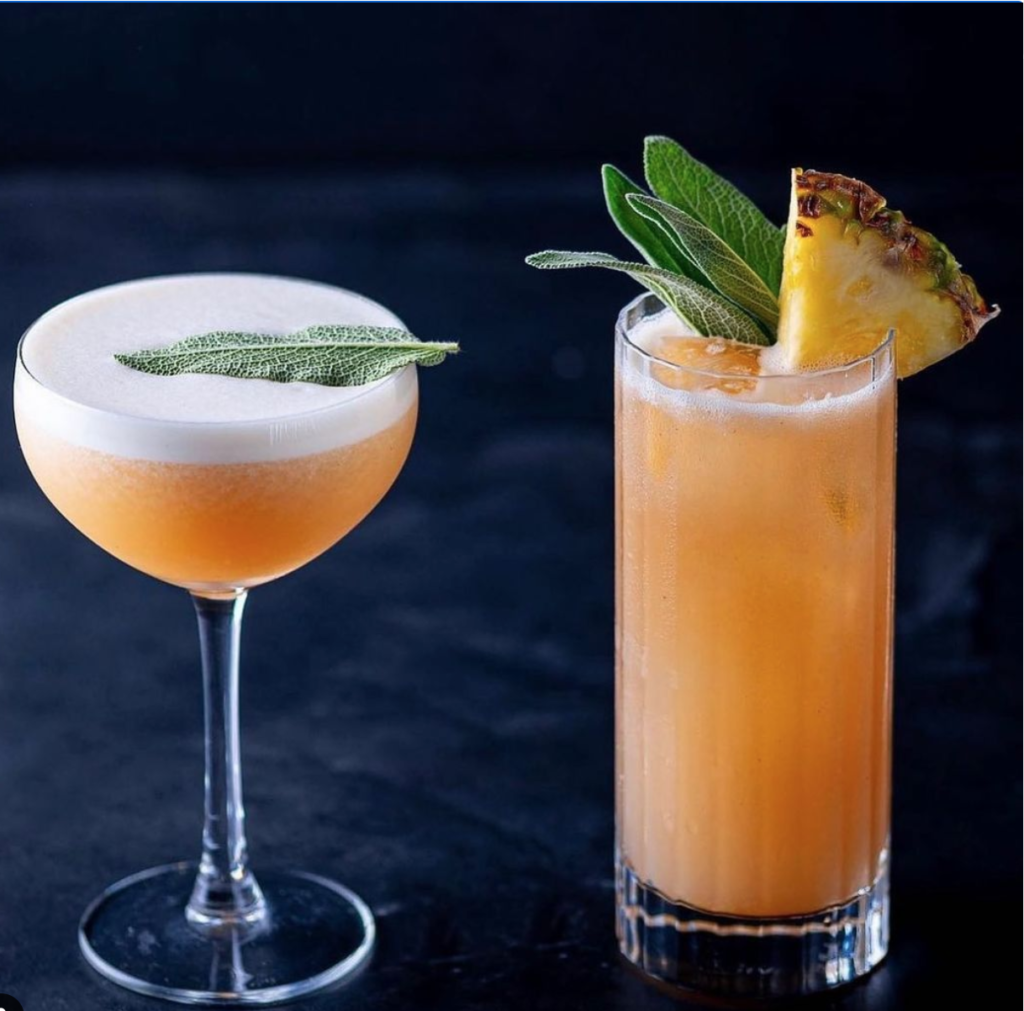
FINALLY – reducing drinking and even skipping the booze has become normal, with more
people than ever paying higher interest to living a healthy, wellness focused life. Longevity
has become more of a trend than jager bombs for some, which is great news for our bodies,
minds and livers.
If you still like to enjoy the odd drink on weekends, or if you find it hard to stay away from
the pub most nights after work, why not give mindful drinking a go? This approach to
drinking may reset your relationship with booze and help you appreciate the drinks you do
have, whilst waking up hangover free.
WHAT IS MINDFUL DRINKING?
Mindfulness came from the Buddhist concept called “sati”, thought to develop self-
awareness and awakening through an understanding of one’s surroundings, feelings and
thoughts without judgement.
Linking this to alcohol, this gives us mindful drinking- the practice of being aware and in
control of why and how much alcohol you drink. What you drink, when you drink, who you
drink with all have a role to play in this.
Mindful drinking often results in a healthier relationship with alcohol and one’s self,
resulting in lower levels of consumption.
TIPS FOR MINDFUL DRINKING:
Plan ahead- Planning ahead is key when it comes to mindful drinking, taking your time to
plan out where you’re heading and checking out if they offer any decent low or no alcohol
options. This gives YOU the option if you want to drink or not. Setting yourself boundaries of
how many drinks you’ll have that night before you head out can lock down good intentions.
Even better, drive to the venue so you don’t even have a choice when it comes to drinking.
Include a ‘spacer’ between drinks – A spacer is a drink that contains no alcohol, that you
consume between drinks that do contain alcohol. Ideally this would be water, to help with
the dehydrating effects of the booze. The idea is that you stay hydrated and you slow
yourself down so that you don’t become intoxicated and potentially have to deal with the
aftermath.
Drink with your senses- When you do have that drink, try to use all senses to fully
appreciate every sip. This way, you’re less likely to chug down more than you planned, and
your satisfaction levels will be sky high.
Distractions- Think of other self care practices you could do, that don’t involve the wine.
This could be having a bubble bath, calling a friend, doing a workout or baking something
healthy you love. Find what works best for you and have a list of backups when the booze
craving hits.
Be specific – Just planning to drink less is too broad when it comes to drinking. With
Christmas around the corner, social events taking place, and after office drinks being back in
action try to set boundaries and be more specific in your goals. Allowing yourself to drink 2-
3 nights a week may work best for you, this makes it easier to control than counting units.
Overall, you’ll be feeling physically and mentally better the morning after practicing mindful
drinking. No sore head, anxiety, loose tummy, extreme thirst, fatigue or weakness- You’ll
also appreciate slowing down, savouring your drink and precious time with the people you
love.
This mindful approach to drinking may just help you make the most of life’s other pleasures
too- but remember, don’t be too hard on yourself as everything in moderation is the
healthiest approach when it comes to enjoying yourself this year.
November through to January – not much blooms in these bleak, cold months apart from dried out skin and breakouts. It’s zero degrees outside, the central heating is on full blast and the leftover party skin from Christmas celebrations is still looming- this all contributes to, well, winter skin.
All the above impact the way in which our skin looks and feels, in addition to skin being a real reflection of what is going on inside the body, so keeping your insides nourished during these months November- January is key to getting your skin back to looking and feeling its best.
Read on for Clarissa’s top nutrition and lifestyle tips to get back your glow…

HYDRATE HYDRATE HYDRATE
You have probably heard it a thousand times, but there’s a good reason for it. Drinking water and staying hydrated contributes to everything from energy, mood, weight and also…skin health. The cold winter weather paired with the increased alcohol consumption from the festive season, can be a hotbed for dry and dehydrated skin.
Dehydration can result in reduced skin elasticity and dryness, as your skin is one of the last places to receive any essential nutrients and water. Drinking 1 litre of water as soon as you wake will not get rid of your wrinkles, but it’s important to ensure you are consuming around 1.5 to 2 litres of water per day to keep
dehydration at bay and help support the alcohol build up from those festive tipples.
SPOTLIGHT FATTY ACIDS
Omega-3s are essential fatty acids that are renowned for their health benefits – and when it comes to our skin, these fatty acids can contribute to improves hydration, reduced inflammation, supporting the skin’s oil production and potentially minimising signs of aging.
The best way to consume omega-3’s is through regular consumption of oily fish such as salmon, sardines, mackerel and anchovies. Aim to have oily fish 2-3 X week in your diet to reap the benefits. Plant based sources of omega 3 include flax seeds, chia seeds and walnuts- but be mindful that omega-3s from plant sources need to be
You could also consider an omega-3 fish oil or algae based supplement to ensure you are getting your RDA and to keep your skin glowing.
AVOID THE WHITE STUFF
Excess sugar in the diet can lead to glycation, a reaction that occurs when sugar levels attach to proteins and produce free radicals known as AGEs. The more AGEs that build up in the body, the more damage that occurs to the proteins surrounding them. The proteins that make up collagen and elastin are most vulnerable, both of which are responsible for plump, healthy looking skin. High sugar diets have been linked to wrinkles and
reduced skin firmness, with an overload of sugar in the diet impacting insulin levels, which can directly impact your sex hormones. Hormonal imbalance is one of the common causes of acne, blotchy skin and skin rashes.
Choose special occasions to consume desserts and sugary snacks, and consider making your own lower sugar. Try out Clarissa’s Superfood bark for a sweet hit without the excess sugar, and packed with fibre.
DE-STRESS
Emotional stress can affect the health of our gut microbiome, most commonly impacting bacterial species lactobacillus and bifidobacterium[1] . (1) Psychological stress can cause our intestinal microbes to produce neurotransmitters that can enter the bloodstream through the intestinal barrier, resulting in inflammation. And higher levels of inflammation can result in acne breakouts and other skin concerns.
For 2022 consider implementing some self-care routines. This could include journaling, deep breathing exercises, connecting with nature or meditation- something to help your brain fully switch off and think elsewhere.
BEAUTY SLEEP
When we sleep our skin regenerates and repairs, especially when we enter deeper modes of restorative sleep. Try out these sleep hygiene practices to ensure you are getting the optimal quality of sleep possible:
– Stop using tech an hour before bed
– Avoid alcohol (especially sugary drinks and cocktails) 2-3 hours before bed
– Drink a glass of water for every alcoholic drink to help your body remove it before
bedtime
– Consider supplementing with Magnesium Glycinate which can help with relaxation
and sleep quality*
*Please always work with your doctor or nutritionist before taking supplements, especially if you are on any medications.
https://www.ncbi.nlm.nih.gov/pmc/articles/PMC5641835/ (1)

MEDAHUMAN Love your liver – Tips on protecting your liver over the festive season
We often think about the heart and brain as our major organs, but the liver is one of the most important processing hubs we have in the body, that helps us to break down substances, remove toxins and help keep us alive – we couldn’t live without our livers!
Over the festive season, the liver can take a bit of a beating – increased alcohol, sugar and less movement are a cocktail of liver stressors.
So what can we do to offset some of the festive fun on our livers?
Read on below for nutritionists Clarissa Lenherr’s top liver health tips.
WHAT ROLE DOES THE LIVER PLAY?
The liver is responsible for breaking down substances and toxins in the body so that they can be removed and “detoxified”, producing bile salts to help with food digestion, fighting infections, and hormone balance and plays a role in the conversion of our glucose and glycogen for energy and fat storage. It’s a pretty important organ!
WHY MIGHT THE LIVER NEED SUPPORT DURING THE FESTIVE SEASON?
The festive season is a time of overindulgence – alcohol, fatty foods, sugar – some of the best tasting things around. Whilst occasional consumption is unlikely to impact your liver, frequent or high consumption can put stress on your liver health.
WHAT CAN WE DO TO SUPPORT OUR LIVER?
DIET
Be mindful of alcohol. Our liver is the site where we break down alcohol, and during this process, harmful substances are created that can damage liver cells. We are not talking about one or two occasional tipples, heavy drinking is linked to significant liver stress. Aim for no more than 14 units per week of alcohol, avoid binge drinking and consider trying MEDA HUMANS no and low alcohol options.
Hydrate. The liver needs water to help it act as our body’s filter. Aim for 1.5-2L of plain water each day.
Keep sugar to a minimum. When we consume foods high in sugar, our bodies break this down into glucose. If we don’t use this glucose as energy it is stored as fat. One of the primary places this fat is stored is in our liver, which can lead to non-alcohol fatty liver disease. Keep to no more than 30g of added sugar per day and opt for lower sugar alternatives.
Increase your intake of cruciferous vegetables. This family of vegetables includes rocket, brussels sprouts, cabbage and cauliflower – to name a few. Studies have found that compounds found in these vegetables may help to fight fatty liver disease. Consume one portion of these vegetables per day.
LIFESTYLE
Get in your exercise. Regular movement can help to reduce stress on the liver, fat storage and fatty acid oxidation. Moving in any shape or form is great, but aim for a minimum of 150 minutes of moderate activity per week (bike ride, brisk walking) or 75 minutes of high intensity per week (dancing, spinning).
Reduce exposure to toxins in the home. Chemicals used in the home are processed by the liver and any toxins can put increased stress on this major organ. Opt for natural or lower chemical cleaning products, skincare, make up and cooking utensils.
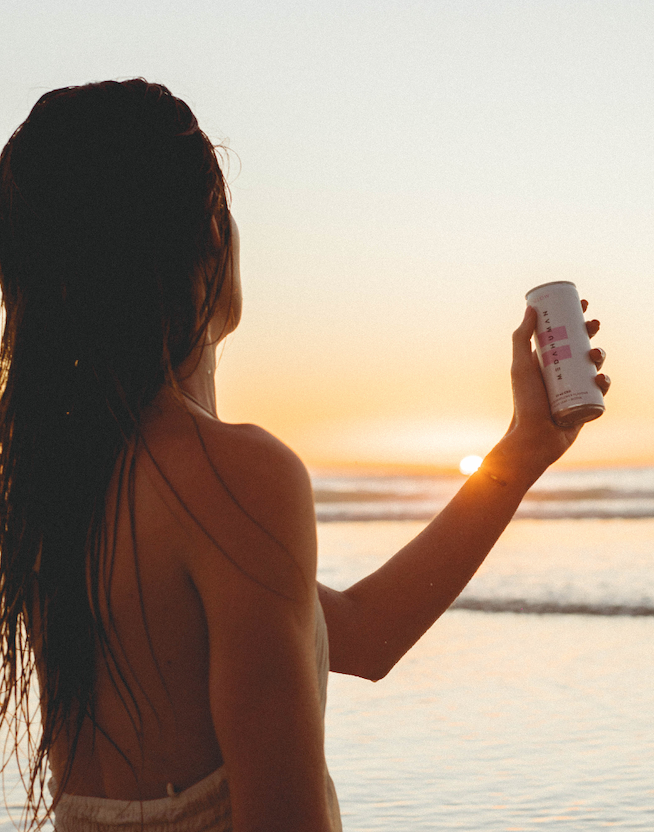
You don’t need to spend hundreds of pounds on lotion, potions and creams to get that summer glow – one of the first places to start is with good nutrition. Our skin is a window into our health, and when we shine on the outside, we are also shining on the inside too! Read on for nutritionist Clarissa Lenherr’s top summer glow get-em tips!
FOODS TO GET YOU FEELING CONFIDENT, FROM THE INSIDE OUT
FATTY FISH
Fatty fish are packed with omega-3’s, essential fatty acids that can help to keep skin moist, supple and glowy. In addition, Omega 3 fatty acids are anti-inflammatory, which may help to calm red, inflamed or acne-prone skin.. Most people focus on salmon when it comes to oily fish, but why not try to include a variety of fatty fish such as mackerel, anchovies and sardines, too.
EXTRA VIRGIN OLIVE OIL
Monounsaturated fats are the type of healthy fats found in extra virgin olive oil. Monounsaturated fats help to keep the skin moisturised and flexible, and a good quality olive oil is loaded with powerful antioxidants! Antioxidants are the body’s in-house defence against free radicals and environmental hazards, which can help fight inflammation and may even protect your skin from UV rays! (1) Opt for an extra virgin olive oil of top quality and in a dark glass bottle. A dark glass bottle helps to protect the oil from any exposure to light which can damage the components of the oil, whilst helping to preserve all the nutritious properties that the extra virgin olive oil has to offer. My favourite brands include Belazu organic and Raw Health Greek.
Drizzle it into soups, onto salads, cooked veggies, use in homemade hummus or dunk your favourite sourdough into it- delicious and nutritious!
RED GRAPES
Grapes are packed with resveratrol, a compound that is found in the skin of red grapes, and have been shown to protect against free radicals, which may reduce the impact of ageing on the skin! (1) And although you may be thinking, is this compound found in red wine too? Unfortunately, the volume of resveratrol found in a glass of red wine is not enough to benefit our skin. Stick to the red grapes, and keep them in the freezer for the most refreshing summer snack.
SUNFLOWER SEEDS
These tiny seeds pack a ton of skin-boosting nutrients, especially vitamin E. Vitamin E is a wonderful antioxidant for skin health and just 28g of sunflower seeds contain 49% of the recommended daily intake! In addition, these little powerhouse seeds contain essential fatty acids such as linoleic and palmitic acid, which can aid in collagen formation. Collagen formation is fundamental to stop the skin from sagging, giving you that youthful, plump and glowy look.
GREEN TEA
EGCG in green tea has antioxidant, anti-inflammatory and antimicrobial properties which have been shown to improve acne and oily skin. Green tea has also been linked to improved moisture, thickness and elasticity of the skin, (3) which helps to give glowy skin its juicy appearance. Try sipping on green tea mid-morning or maybe switching up your regular latte for a matcha latte, which contains 3 X more antioxidants than 1 cup of green tea.
RED & YELLOW PEPPERS
Colourful fruits and veg can give your skin just what it’s craving, and peppers fit that bill! Peppers are an underrated beauty food, packed with skin-protecting antioxidants and carotenoids. Bell peppers, in particular, are a great source of beta carotene, which the body converts into vitamin A, which is essential for skin cell reproduction. They are also a great source of Vitamin C, which is essential for manufacturing collagen and both carotenoids and vitamin C are antioxidants, which will help to fight free radicals that may cause damage to our skin and cause premature signs of ageing.
Red and yellow peppers are one of the richest dietary sources of vitamin C, so up your intake of those crunchy peppers, and serve as a delicious side to some homemade hummus!
Aim to include the above foods into your summertime meals, along with staying fully hydrated, getting 7-9 hours of good quality sleep a night and eating a well-balanced, whole food diet to give your skin all the love and nutrients it requires to glow this summer.
https://pubmed.ncbi.nlm.nih.gov/24964816/ (1)
https://pubmed.ncbi.nlm.nih.gov/16732220/ (1)
https://www.sciencedirect.com/science/article/abs/pii/S0965229916300280?via%3Dihub (2)
https://pubmed.ncbi.nlm.nih.gov/21525260/ (3)
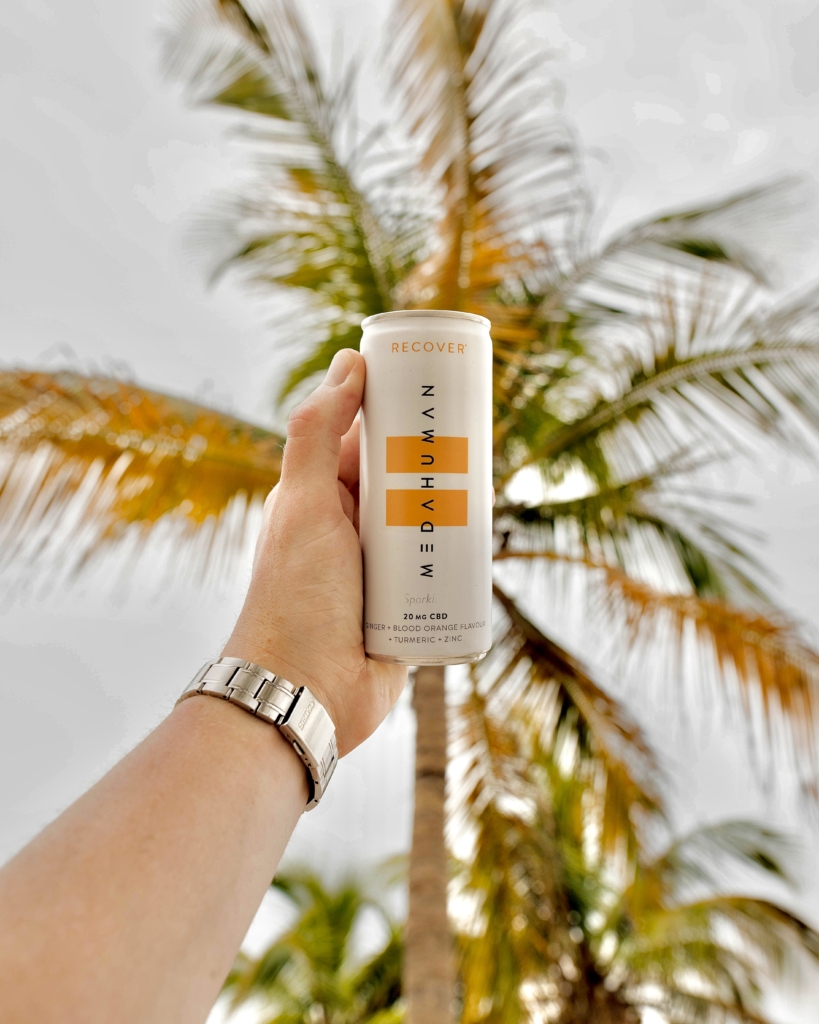
Now that travel is well and truly back, we can start getting excited about summer plans. But, if like many, the past few years have sent you on a health kick, you might want to find a travel destination that caters to this. Read on for our top wellness destinations to try this summer.
IBIZA:
Whilst Ibiza is known for its rave and party culture, it is also renowned for its holistic side – think yoga, cleanses and detoxing. Check out some of the best healthy restaurants, cafes and activities to get involved in:
- Yoga Moji- A free-spirited yoga retreat set in the natural beauty of northern Ibiza. They offer classes with the most amazing views to give you a relaxing and beautiful experience, leaving you restored and recharged.
- Hiking- Sa Talaiassa is the highest point on the island, standing at 487 metres. Another popular hiking area is the area of Benimussa, known to the locals as the hidden valley, which is close to Ibiza town.
- Biking- Rent a bike and explore the island, the surroundings are beautiful and it will feel like a real adventure. There are numerous biking routes so choose one for your level, and try to go first thing to miss that intense midday sun!
- Passion- a favourite for the locals and some of the best juices and smoothies on the island. Passion has numerous branches and they source fresh and organic ingredients, so you can get your health hit wherever you’re staying.
- Aubergine Ibiza- All organic and freshly grown produce from their very own back garden, the menu is full of your Mediterranean favourites in the most perfect setting. One not to miss!
- Wild Beets- Raw, plant-based, gluten-free cuisine with a focus around energising the body but never sacrificing on taste. Each item on the menu has been carefully calibrated for maximum nutrient density and flavour.
MARBELLA
Marbella is famed for its luxury lifestyle and beach clubs, however, over the years it has followed the trend and answered the rising demand for health and wellness tourism. Marbella is filled with great healthy restaurants and workout classes, along with new wellness technology when it comes to treatments. After all, they had to provide for the “no carbs before Marbz” brigade!
- Organic market- Opened in 2014, Organic Market is one of the number one spots when it comes to organic healthy food in Marbella. Offering both raw vegan dishes to organic fish and chicken, there is something for everyone.
- Hustle n flow- A trendy healthy cafe located only a stone’s throw from Marbella’s old town, they use nutrient-dense superfood extracts to probiotics blended into their dishes. Not just for the vegans, they also offer organic eggs, chicken and line-caught salmon on their menu, so there is something for everyone.
- Manuka- A flexitarian restaurant offering healthy and wholesome food free from refined sugar and additives. The menu is inspired by plant-based dishes around the globe whilst also offering a selection of grass-fed meats for the meat-lovers. A great option for delicious and nutritious food!
- Radiant yoga- A luminous yoga studio with bamboo flooring, infra-red panels for hot yoga sessions and a relaxing outdoor area to connect after class, Radiant yoga has it all. They offer a variety of yoga styles to help connect the body, mind and soul such as hot yoga, hatha, vinyasa flow, rocket/ ashtanga, yin, therapeutic, prana kriya and pilates classes.
- Las Dunas Hotel Spa- The hotel spa offers a dry flotarium, which gives users 30 minutes of total relaxation in which they enter a deep meditation state. It is designed to help combat stress and helps users disconnect from their worries offering benefits such as enhanced sleep quality, muscle recovery, lowers anxiety, helps combat jet lag and may boost mood.
- Walk or cycle: Paseo Maritimo is considered one of the most beautiful promenades along the entire coastline and is an ideal walking or cycling route. It is approximately 7km long, taking you from Marbella to Puerto Banus where you will find local shops, restaurants, bars and shops in between.
MYKONOS
Ah, Mykonos, the home of the summer party scene and dancing until the sun comes up! For those of you wanting to party hard and recover well, there are a few spots that will help get you back to feeling fresh and revitalised, ready to hit it again!
- Bowl- The perfect spot for a quick, healthy breakfast, brunch or lunch. They offer locally sourced food, taking inspiration from global food trends and are dedicated to delivering the most delicious, seasonal, homemade energy bowls. Whether you’re vegan, vegetarian, gluten or dairy free, they have something for everyone.
- Spilia- Spilia in Greek means cave, and once you arrive at Spilia you will understand why. The most beautiful setting and the best fresh seafood for a wonderful lunch right on the water.
- Yoga Mykonos- Yoga, Pilates, Zumba, personal training…you name it, yoga Mykonos have it. They organise daily groups for awakening yoga or sunset yoga, giving you the experience to practice from the most unique points Mykonos has to offer.
- Floating Mykonos- Floating Mykonos offer paddle boarding, watersports, snorkelling and diving trips to let your adventurous side go wild.
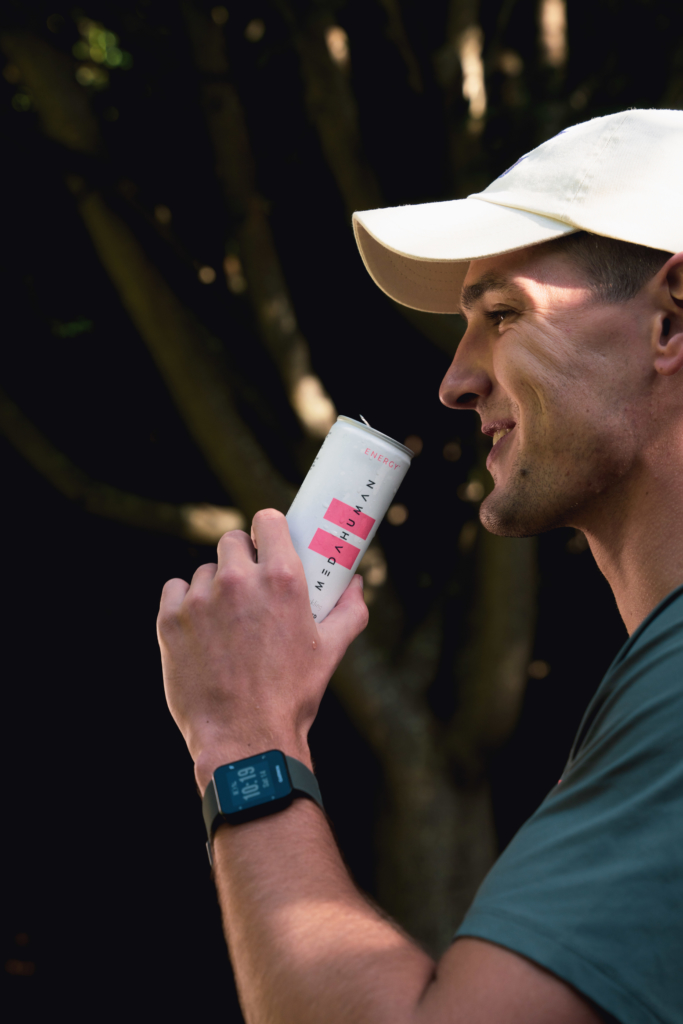
There is no better time to start a self-care routine than in the pre-summer months! And it doesn’t have to be drastic, restrictive or overwhelming. Small swaps and little tweaks to your diet and lifestyle can make some of the most significant changes. Read on for some of Nutritionist Clarissa Lenherr’s easiest tips to get you feeling confident from the inside out
STAY HYDRATED
The human body is made up of around 60% water! Therefore, it makes sense that keeping ourselves optimally hydrated is key for health, including physical performance, energy, mood, skin, gut health and more…
I always advise my clients to drink between 1.5-2.5 litres of filtered water daily, but this number might be higher if you are doing any form of high-intensity exercise where you sweat a lot or have lots of saunas (lucky things!).
Water also supports flushing out waste from the body and removing the build-up of toxins, regulating body temperature and assisting with brain function! So…drink up, and if you struggle with your H2O intake, try herbal teas or flavouring your water with fresh fruits.
DE-BLOAT
AHH, that summer time puffiness, often caused by the heat, the booze or those highly salty foods you’ve been nibbling on. But do not panic, there are a number of ways we can reduce water retention with some self love.
- Dry brushing- The benefits of dry brushing are endless – it helps to awaken your senses, leaves you with super smooth skin, stimulates blood flow and can even help to break down cellulite. It is so easy to incorporate into your morning routine, and is great for when you feel that little bit swollen first thing, after a long flight or a day of standing. Start at your feet and move up your body, brushing in wide, circular clockwise motions towards the heart.
- Hydrating foods- Eating highly hydrating foods may be just what your body is craving to reduce that bloat. Stick to all-natural, wholefoods with a high water and potassium content to get you feeling good, think cucumber, asparagus, melon, pineapple and berries. Natural unsalted nuts and seeds such as almonds, walnuts, pumpkin seeds and brazil nuts are also highly nutritious and are a great addition to any meal. Try to avoid alcohol, caffeine and processed foods high in salt, sugar and fat to get you back to feeling your best.
- Elevated legs- Raising your legs whilst watching TV, listening to a podcast or at night before bed can help to limit water retention, too. Elevating your legs helps to allow gravity to work with you rather than against you, and it comes from viparita karani, a yoga pose which has your legs inverted up a wall with your torso and head lying flat on the ground. A common cause of leg swelling can be due to weak circulation, so giving your body 15 minutes to de-puff may be just what it needs to leave you feeling lighter and brighter.
GET MOVING
Moving your body is a great way to get the blood pumping and get you feeling good. Everyone is individual when it comes to their workout of choice… it doesn’t have to be sweating until you can’t see and pounding on a treadmill for 3 hours! A brisk 30-minute walk or even a gentle stretching session can help to release endorphins and relieve stress. As summer draws closer, working out outside is a great way to top up your vitamin D levels whilst getting in your daily movement. Working out at least 3 times a week is a fantastic way to feel connected with your body, whilst making you feel stronger, more flexible and confident as you step into summer.
PROTECT YOUR SKIN
It’s SPF season, and although it’s recommended to wear SPF all year round, we will now be spending more time outside as the weather warms and days get longer.
Wearing a good quality SPF is essential to protect our skin from harmful ultraviolet radiation, and even on those cloudy city days, our skin is still susceptible to the sun’s rays which can result in wrinkles and discolouration. When it comes to skin protection, it can be confusing as to which one to use with so many on today’s market.
I suggest investing in a good quality SPF to wear every day on your face and chest, even when you don’t think you’re exposed to any sunlight, it still creeps through those clouds! SPF50 offers 95% protection from UV, with SPF30 offering 93% protection. And although a 2% difference does not sound much, it adds up over time. My favourite, all-natural SPF is by Tropic available here.
SUPPORT YOUR GUT HEALTH
The health of our gut impacts pretty much every aspect of our health! There are numerous signs and symptoms that can indicate poor gut health including irregular bowel movements, constant fatigue, sleep disturbances and food intolerances. But even if you don’t have gut symptoms, it is still worth being proactive! You may find that by looking after your gut, you get that added boost in energy, less anxiety or even clearer, fresher looking skin.
My top 3 easy gut health tips to include into your daily routine are:
- Eat slowly and chew your food thoroughly, it should take at least 20 minutes to finish your meal, so take your time and eat mindfully to fully enjoy the whole experience.
- Manage your stress levels- many gut symptoms manifest from high stress levels, so taking time out away from work, screens and the hustle and bustle of everyday life is key to getting your gut health under control. Try 10 minutes of meditation, some deep breathing techniques, slow stretching or a 20 minute walk in the sunshine.
- Take a good quality probiotic at the same time every morning, probiotics act as a fertiliser to stimulate the growth and development of healthy bacteria in the gut.
BEAUTY SLEEP
When it comes to feeling our best, getting a solid, good night’s sleep is just as important as eating nutritious foods. Poor quality sleep is associated with lowered mood and can heighten feelings of anxiety or depression. Aiming for 7-9 hours a night of good quality sleep is fundamental, but practising good sleep hygiene is key!
Sleep hygiene is a set of rituals that you can incorporate into your night time routine to leave you feeling alert and fully refreshed the next day.
Try some of our favourite sleep tips below:
- Having a solid sleep schedule, aim to go to sleep and wake up at the same time every day.
- Avoid the use of technology and blue light 1 hour before bed, and try to wind down by listening to a podcast, relaxing music or reading a book.
- Monitor your caffeine intake, and do not consume caffeine after 3 pm in the afternoon. Caffeine can stay in your system for hours, and if consumed too late in the day can impact your deep and REM sleep quality.
- Keeping your bedroom cool, dark and quiet can help you to fall and stay asleep. A bedroom temperature between 15.6C and 19.4C is the optimal temperature range for sleeping.
- Try MEDAHUMAN NIGHT. A functional wellness drink that helps you switch off and sleep, formulated by nutritionists.
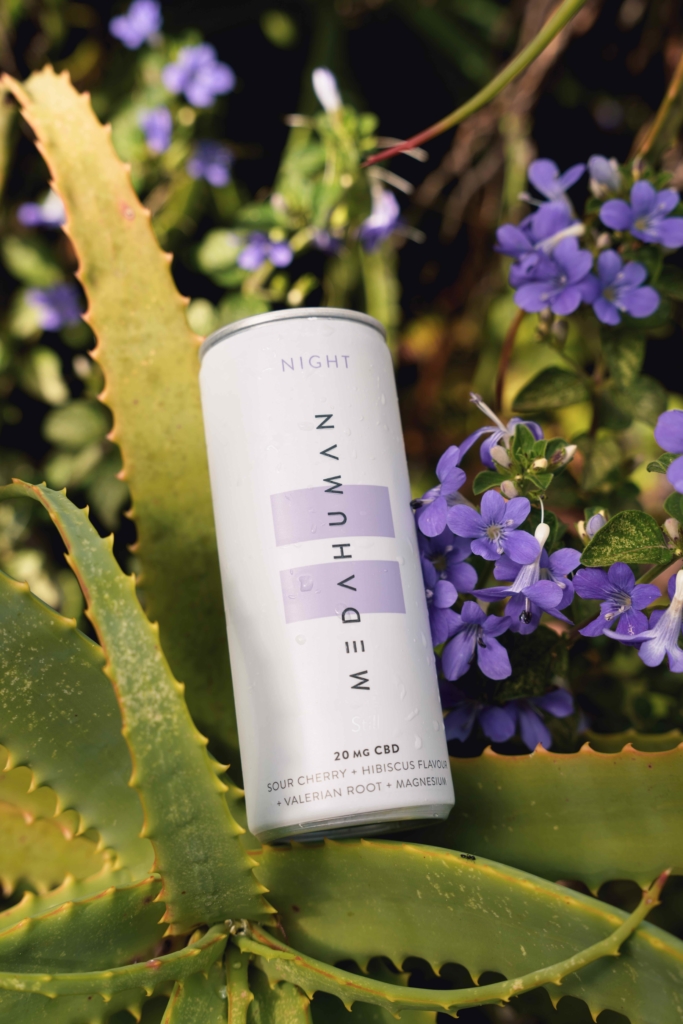
Deep dive into the Benefits of NIGHT’s Ingredients and how they may aid your sleep.
If you’re eating well and working out, but aren’t getting in enough good quality sleep, you may be undermining all your other efforts.
A poor night’s sleep can result in you feeling far from fresh, low in mood, poor energy levels and a lack of overall productivity.
MEDAHUMAN’s NIGHT drink may be just what you need to help drift you off into the perfect night’s slumber – with only 25 calories per can, no nasties, and all natural sleep promoting ingredients, this could be the perfect calming antidote that you’re missing to help contribute to a five star sleep.
Read on to discover more as Nutritionist Clarissa Lenherr delves into each ingredient…
CHERRIES
Not only are cherries delicious, they are one of nature’s best sleep aids! This is thanks to the fact that tart cherries are one of natures only natural sources of melatonin – the hormone responsible for sleep! Melatonin is a potent antioxidant produced naturally by the body to regulate biorhythm and natural sleep patterns. (1)
The tryptophan content in cherries also contributes to their sleep inducing effects. Tryptophan is an amino acid that is needed to produce melatonin (2). One study found that consuming cherry-based products daily improved nightly rest, decreased the number of nighttime awakenings, resulting in higher urinary melatonin levels the next morning. (3)
MAGNESIUM
There are very few nutrients that offer as many benefits as magnesium does…this magic mineral is involved in over 600 bodily reactions! Benefits range from energy production, gene maintenance, regulation of the nervous system, stress support and muscle relaxation. (4) Magnesium also has an impact on the processes that help to promote sleep, with low levels of magnesium linked to troubled sleep and insomnia. (5)
One study found that having optimal levels of magnesium in the body is required for consistent sleep, with sufficient magnesium levels also being required to help individuals reach a deep and restful night’s sleep. (6)
One 2012 study published by the National Institute of Health reported that magnesium can improve symptoms of insomnia (7). Age dependant, women should aim for 310-320 milligrams daily, with men aiming for 400-420 milligrams. (8)
VALERIAN ROOT
Valerian root is a herb native to Asia and Europe. It is now grown worldwide, with many people relying on it to help promote sleep and reduce anxiety. Also known as “nature’s valium”, valerian root is a herb that has been used since ancient times to help improve overall tranquillity. It includes a number of compounds such as valerenic acid, isovaleric acid and numerous antioxidants to help to promote overall sleep.
Research has shown that taking valerian root may help to reduce the amount of time it takes to drift off, whilst also improving sleep quantity. (9)
Studies have shown success rates when valerian interacts with gamma-aminobutyric acid (GABA), the chemical messenger that helps regulate nerve impulses in the brain and nervous system. Researchers have found that low GABA levels related to acute and chronic stress are linked to anxiety and poor-quality sleep. (10)
The National Institute of Health (NIH) undertook a clinical trial in which 121 people with insomnia took 600mg of valerian root and had decreased symptoms of insomnia compared to the placebo after 28 days of treatment. (11)
MEDA’s NIGHT contains valerian root extract, which will aid with drifting off into a perfect night’s sleep due to its calming effect.
VITAMIN D3
Vitamin D is an essential vitamin that helps to promote bone health, energy production and mood – to name a few.
Numerous studies have shown the link between vitamin D levels and different measures of sleep. Low blood levels of vitamin D have been associated with decreased sleep efficiency, increased daytime sleepiness and decreased sleep time. (12) This demonstrates that upping your levels of Vitamin D, even by a small amount, could help to improve your sleep.
Vitamin D is best taken as a supplement or by being outside in the natural sunlight. Good food sources include fatty fish such as salmon and mackerel, egg yolks and fortified milks. And of course, sipping on MEDA HUMANS Night time beverage.
CBD
CBD, as found in MEDA HUMANS Night beverage, may contribute to a calmer, more restful night of sleep, thank to its potential to help reduce anxiety and stress levels.
Studies have suggested that the interaction of CBD with serotonin receptors in the brain may reduce anxiety levels (13), whilst a 2019 CBD sleep study reported that 79.2% of the patients they tested felt less anxious and 66.7% reported better sleep after supplementing with CBD (14).
*Always check in with your healthcare provider before taking any supplements or herbs
References:
https://www.ncbi.nlm.nih.gov/pmc/articles/PMC4273450/ (1)
https://pubmed.ncbi.nlm.nih.gov/22553424/ (2)
https://www.ncbi.nlm.nih.gov/pmc/articles/PMC5617749/ (3)
https://journals.physiology.org/doi/full/10.1152/physrev.00012.2014 (4)
https://pubmed.ncbi.nlm.nih.gov/23969766/ (5)
https://pubmed.ncbi.nlm.nih.gov/11777170/ (6)
https://pubmed.ncbi.nlm.nih.gov/23853635/ (7)
https://openheart.bmj.com/content/5/1/e000668 (8)
https://pubmed.ncbi.nlm.nih.gov/3936097/ (9)
https://pubmed.ncbi.nlm.nih.gov/20634372/ (10)
https://ods.od.nih.gov/factsheets/Valerian-HealthProfessional/ (11)
https://pubmed.ncbi.nlm.nih.gov/25581929/ (12)
https://pubmed.ncbi.nlm.nih.gov/20634372/ (13)
https://www.ncbi.nlm.nih.gov/pmc/articles/PMC6326553/ (14)
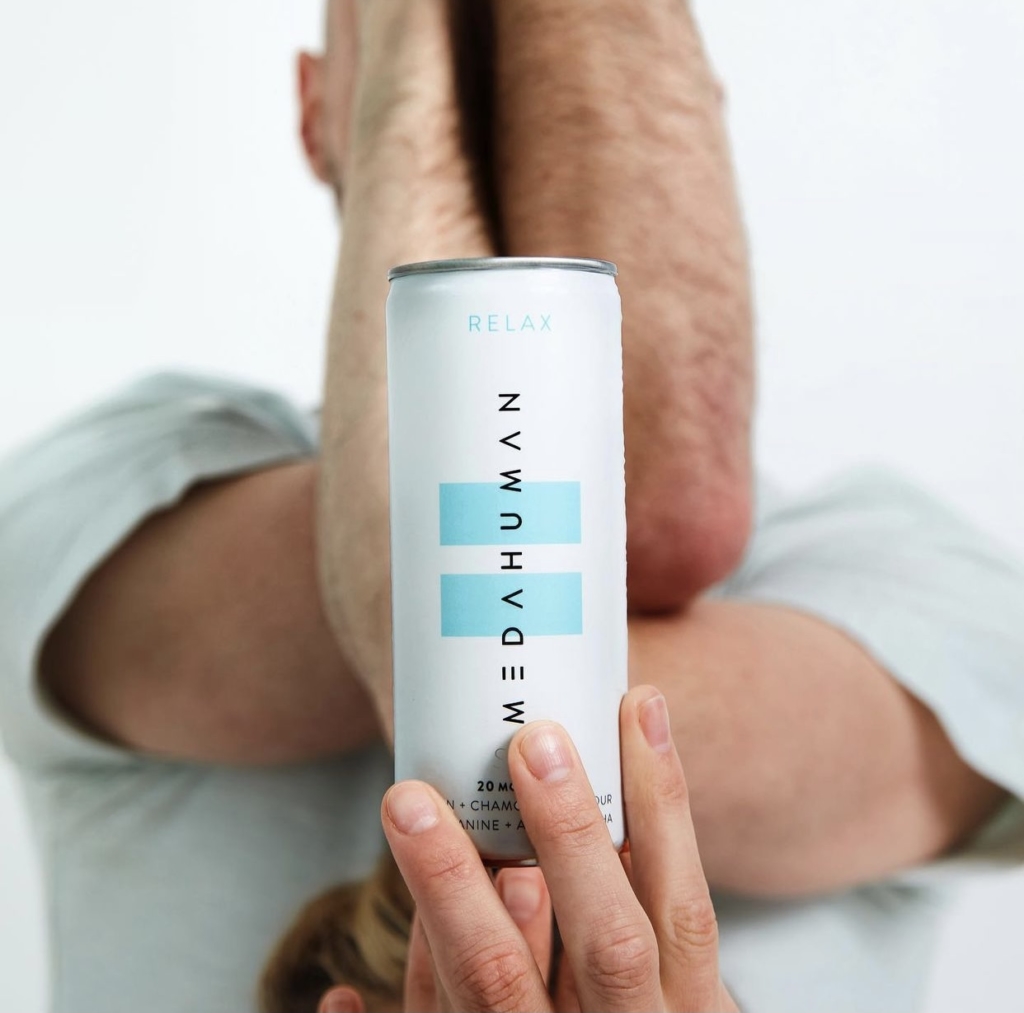
Adaptogens- yes they have a long, unusual name, but these super-herbs and plants are a great way of giving our bodies some added love and support in times of need. They can be taken as a supplement, added to your coffee, smoothie, hot chocolate, porridge and found in many of the MEDA HUMAN drinks.
Read on to learn more about adaptogens and how incorporating them into your day to day might be the answer to some of your stress needs.
WHAT ARE THEY?
Adaptogens are a class of herbs and plants that are thought to help the body “adapt” to stressors. They are safe, non toxic plants that may support the body in feeling more balanced and harmonised.
Adaptogens can help support our body’s stress responses – whether that is reacting to or recovering from short and long term physical or mental stress. Some adaptations even have the ability to contribute to immune system health and overall well being. Research has shown that adaptogens may help to combat fatigue, help ease depression and anxiety, boost mental performance and help us feel our best.
HOW DO THEY WORK?
Adaptogens help to regulate balance in our hypothalamic, pituitary and adrenal glands and work to modulate the release of our stress hormones and the physiological responses to stress. All in all, a winner for stress support!
OUR TOP ADAPTOGENS FOR STRESS SUPPORT
FOR LONG TERM STRESS
Ashwagandha and Asian ginseng may help to soothe long term stress and the hormone imbalances that result from it. Ginseng may help to regulate immune responses and the hormonal changes that occur due to stress, therefore helping to maintain homeostasis. (1) Ashwagandha has been reported to improve mental wellbeing, eating behaviours and reduce stress through its adaptogenic properties. (2) Ashwagandha can be found in our MEDA HUMAN relax beverage.
FOR ACUTE STRESS AND ANXIETY
Holy basil, also known as Tulsi, may help to reduce anxiety and acute stress (3). The whole holy basil plant can act as an adaptogen, with research showing that holy basil may help your mind cope with different types of stress. (4)
One study demonstrated how the use of Holy basil in both humans and animals reported an overall reduction in mental stress, sexual problems, sleep issues, forgetfulness and radiation from chemicals and heavy metals.(5) It also reported antidepressant activity with additional positive effects on memory and cognitive function. (6)
Try out holy basil in tinctures, supplements or our favourite – as a tea!
FOR IMMUNE HEALTH
Reishi is one of the medicinal mushrooms that may help support immune system health. It is suggested that Reishi mushrooms may promote white blood cell function – a critical part of the immune system. One study looking at male athletes discovered that taking reishi extract in supplement form improved lymphocyte function, which helps the body fight off infections. (7) You can try Reishi as a supplement, extract or even buy reishi coffee!
NOT FOR EVERYONE
Adaptogens can react/ respond differently from person to person, so doing some research into which one would best suit your lifestyle is key. If you’re new to adaptogens, it may be worth checking out MEDA’s adaptogen containing drinks such as RELAX and ENERGY to give you a taster.
Similar to all supplements, adaptogens may have side effects and possible medical interactions so it is advised to work with a doctor, nutritionist or healthcare professional before adding new supplements and herbs to your routine.
https://www.ncbi.nlm.nih.gov/pmc/articles/PMC5628357/ (1)
https://www.ncbi.nlm.nih.gov/pmc/articles/PMC6979308/ (2)
M. Venu Prasad, Antifatigue and Neuroprotective Properties of Selected Species of Ocimum L., University of Mysore, Mysore, India, 2014.(3)
S. Mondal, B. Mirdha, M. Padhi, and S. Mahapatra, “Dried leaf extract of Tulsi (Ocimum sanctum Linn) reduces cardiovascular disease risk factors: results of a double blinded randomized controlled trial in healthy volunteers,” Journal of Preventive Cardiology, vol. 1, no. 4, pp. 177–181, 2012. (4)
https://pubmed.ncbi.nlm.nih.gov/21977056/ (5)
https://pubmed.ncbi.nlm.nih.gov/19253862/ (6)
https://pubmed.ncbi.nlm.nih.gov/18048435/ (7)

SUPPORT YOUR BODY THROUGH STRESS
May is mental health awareness month – a month-long campaign dedicated to highlighting the importance of acknowledging and finding ways to manage your own personal stress and mental health.
And whilst working on your own personal stressors is a key part of stress management, there is also a crucial role that nutrition and lifestyle adjustments can play.
Read on for nutritionist Clarissa Lenherr’s top ways to support your body through stress.
Dietary tips:
CONSUME OILY FISH
Salmon, mackerel, sardines, anchovies – these wonderful, oily fish are high in omega3 essential fatty acids that have been shown to reduce symptoms of stress and help lower inflammation within the body. (1)
AVOID SUGAR
Often, when stress levels are elevated, we often forget to eat well and reach for quick options that tend to be high in sugar. Our body is designed to crave sugar when we are stressed, as it gives us quick and easy energy. However, in the long run, high consumption of sugar can exacerbate stress levels and lead to low energy and mood. When sugar cravings hit, reach for wholefood options such as fruit, dark chocolate or pair your sweet option with a fat and/or protein to help slow the release of sugar. Think peanut butter and apple or tahini stuffed dates.
BE MINDFUL OF CAFFEINE
When we consume caffeine, we pump our more of our stress hormones. When we are not in a stressed state, this can make us feel alert and motivated, but when we are stressed, this can actually trigger symptoms such as irritability, snappiness, mood swings and jitteriness.
The NHS recommends we consume no more than 400mg of caffeine per day. However, if you are feeling stressed, you may wish to drink less than this or swap to lower caffeine alternatives. Green tea is a great alternative as it is not only significantly lower in caffeine, but also contains L-theanine which helps promote the release of GABA, our calming neurotransmitter.
NAVIGATE ALCOHOL
Alcohol can impact our quality of sleep, leaving us more vulnerable to irritability and higher feelings of stress the next day. As well as keeping below the recommended maximum of 14 units per week, try out no and low alcohol alternatives, such as MEDA HUMAN’S Calm or Recovery beverage.
Lifestyle tips:
MEDITATION
Meditation has been shown to reduce stress levels (2) by focusing on the mind-body connection and present moment awareness, helping to put the body at ease. (3) Try an at-home meditation app to get you started such as Calm, a flexible app with less structured programs and exercises to help manage anxiety. Alternatively, the Superhuman app is great for beginners, with cooking and cleaning meditation recordings, 95% of users felt a positive mood shift within a week.
TRY MINDFUL MOVEMENT
Exercise helps to release chemicals in the brain called endorphins, which are also known as the body’s “natural painkillers”. These can help to reduce stress and improve sleep, even just ten minutes of exercise can stimulate anti-anxiety effects. Try low-intensity workouts such as incline walks, Pilates, swimming and yoga.
GET OUT INTO NATURE
Get out for a walk into nature! Studies have shown that exposure to nature can help to reduce blood pressure and stress levels.(4) If you can’t get out of the house, don’t worry! Invest in some greenery for your home – it can have a similar effect!
References:
https://www.ncbi.nlm.nih.gov/pmc/articles/PMC538287/ (1)
https://pubmed.ncbi.nlm.nih.gov/24395196/ (2)